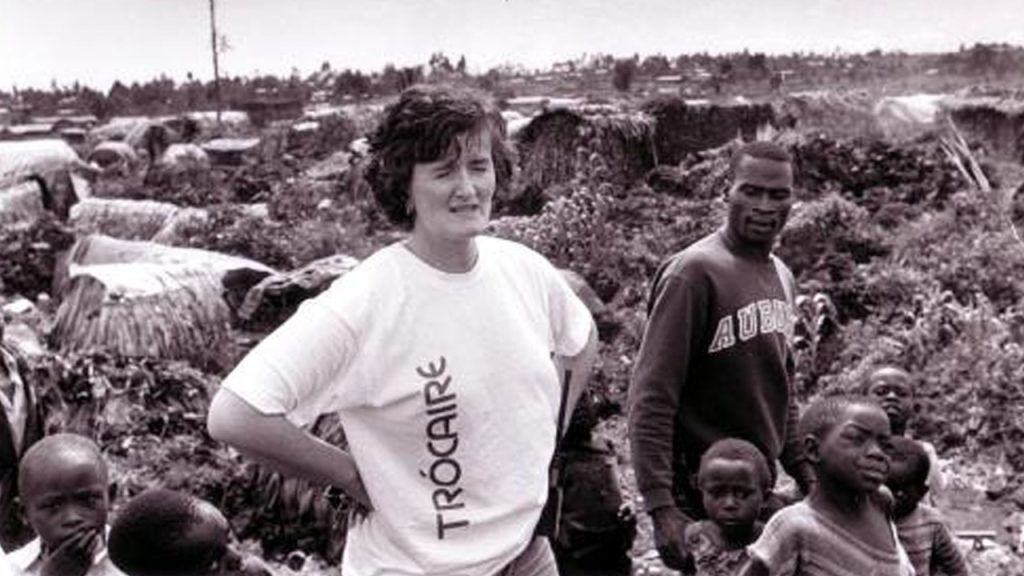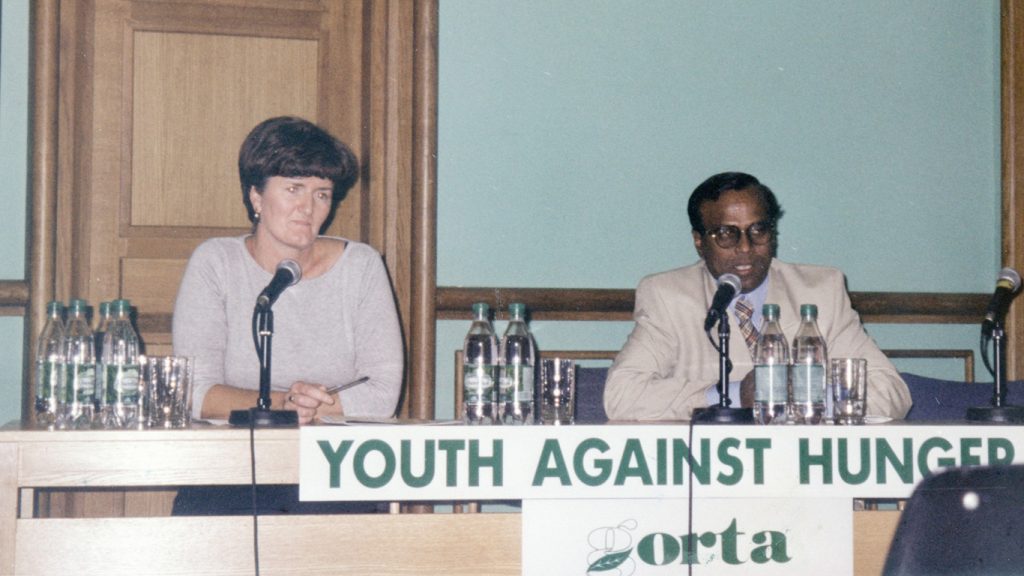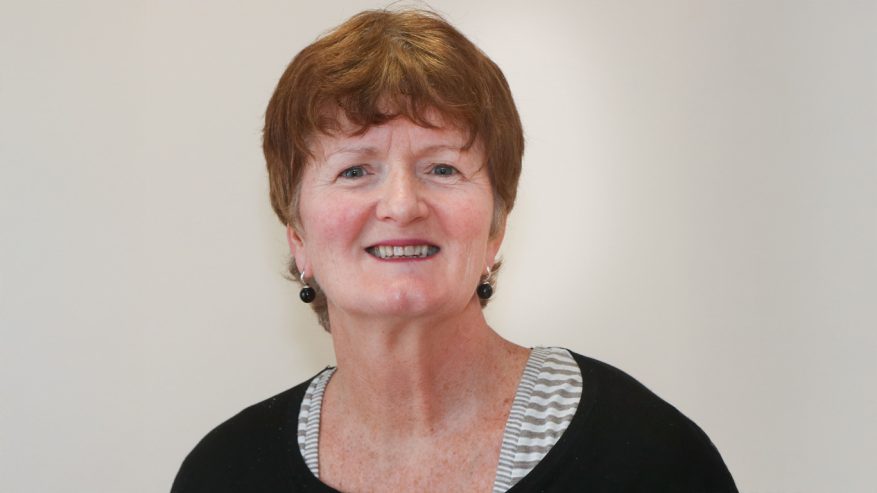At Self Help Africa, our influential ‘boots on the ground’ subject matter experts enable us to continue our impactful work, delivering sustainable solutions to improve the lives and living conditions of communities across Africa. In the first of our Meet Our Experts series, we are delighted to introduce you to Mary Sweeney, Senior Global Gender & Social Inclusion Advisor.
As a young student in Catholic school in Ireland, Mary Sweeney listened to a nun speak about her missionary work in Nigeria. She recalls asking the nun, “Why are children dying of starvation if there’s enough food in the world for everybody?” At the time, neither the nun nor the other missionaries were able to provide Mary with a satisfying answer. This pivotal moment became the beginning of Mary’s dedication to ensuring equitable access to food, education, income, and human rights for all.

Today, Mary Sweeney works with Self Help Africa as the Senior Global Gender & Social Inclusion Advisor. For the last ten years, she has advocated for gender equity and impactful change in all aspects of SHA’s programming and brought that same critical eye to the chronic crises of hunger and poverty that persist today.
Poverty disproportionately affects women, widening the gap between men and women and hindering social and economic development. Attention to gender equity is an essential element of a sound development practice.
Through Mary’s efforts, Self Help Africa continues to strive to integrate gender equality as a focus into all of our programs and policies rather than treating it as a separate issue.

Mary advocates tirelessly for gender equity in communities across Africa. “No country can develop if you exclude fifty percent of the population, women,” she says, emphasizing the importance of women’s empowerment in sustainable development.
SHA works with communities to increase women’s agency and financial independence. In many communities, the women work on their family farms while their husbands take the produce to the market to sell. The men almost always keep the money.
Mary explains, “When the husbands go to the market and control the money, twenty percent or less is used in the household. If women control the money, frequently ninety percent is put back into the household and the children.”
Mary navigates the numerous challenges that come with her job, including gender-based violence. Around one-third of women in Sub-Saharan Africa face gender-based violence in their lifetimes. With sensitivity and caution, Mary encourages families to make decisions together on what to buy, what to sell, and how to allocate their family finances.
Mary notes that the transition towards gender equity will take years to achieve. Self Help Africa uses a metric between one and five to measure the progress of gender equity in each community. One represents a community where women have very little agency. And five indicates a community where women have complete agency, equal say, and control in the home.
“Over a five-year program focused on gender, we can see that we helped get a community from a two to a three metric,” she says. It’s a small change but in the right direction. Mary believes that everyone has the right to live a dignified life, and her work is helping women achieve this.
“We can see where our work is changing hearts and minds,” Mary says. It’s creating more equal decision-making within the family and helping to create greater harmony. By reducing gender-based violence, giving women more access to education, and improving household nutrition, we are seeing positive results.”
Mary has seen many positive changes in the international development sphere over the last 40 years. Primarily, the paradigm switch to “Locally-led Development.” As a result, there is vastly more collaboration with local groups and organizations. Mary says, “We aren’t coming in to prescribe; we are coming in to listen, to see what barriers there are, and to work together.”
Looking ahead, Mary envisions a future where her advisory & advocacy role at SHA is filled by an African successor, embodying a commitment to genuine representation and empowerment within the organization. In Mary Sweeney’s tireless pursuit of gender equity and social justice, we find a beacon of hope and inspiration, illuminating the path toward a more equitable and inclusive world.

